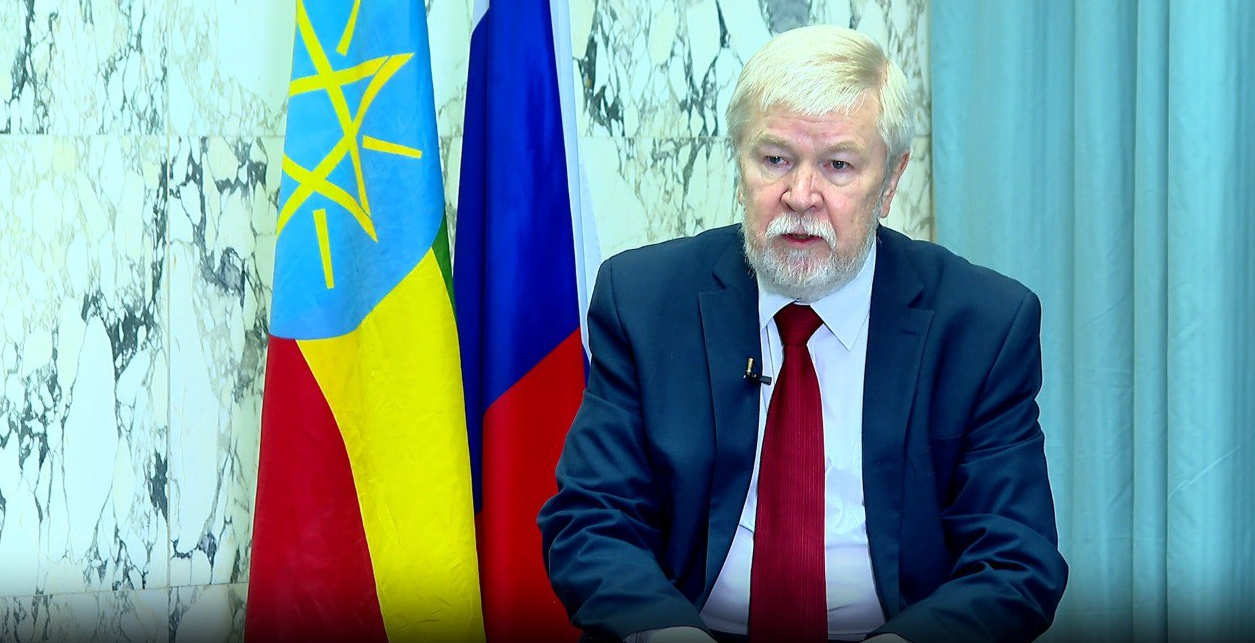BRICS Membership Serving As Impetus for Ethiopia's Economic Growth, Global Standing: Ambassador Terekhin - ENA English
BRICS Membership Serving As Impetus for Ethiopia's Economic Growth, Global Standing: Ambassador Terekhin

Addis Ababa, May 7, 2025 (ENA) -- Ethiopia's accession to the BRICS is serving the country as a significant impetus for both economic growth and enhanced global standing, Russia's Ambassador Yevgeny Terekhin said.
The membership is opening up crucial avenues for development financing, technical expertise, and new market opportunities for the nation, the Russian ambassador to Ethiopia added.
In an exclusive interview with ENA, Ambassador Terekhin stressed that BRICS membership "provides Ethiopia with access to important mechanisms for economic development and international cooperation."
Beyond the economic advantages, Ambassador Terekhin sees Ethiopia's role in BRICS as bolstering its influence in global political affairs.
"The organization provides a platform for advocating reforms in international governance structures and promoting development models that reflect diverse national peculiarities," he stated.
With respect to relations with Russia, one of the members of the RRICS, Ambassador Terekhin pointed out that "Ethiopia's accession has become a powerful catalyst for strengthening economic cooperation between our countries."
According to the ambassador, Ethiopia's historical leadership in advocating African interests complements Russia's efforts to create a more equitable international system, allowing the two countries to more effectively advance shared priorities and address common challenges, ranging from climate change to trade barriers within the BRICS framework.
Russia's experience within the group has allowed it to help Ethiopian colleagues understand how to maximize benefits from this partnership, including participation in business forums, financial cooperation initiatives, and policy coordination mechanisms.
Ambassador Terekhin further detailed the broader strengthening of economic ties between Russia and Ethiopia.
This positive trend reflects the genuine interest of businesses from both nations in expanding cooperation.
He revealed that the Russian Trade Representation in Addis Ababa is actively receiving "multiple inquiries from companies eager to explore opportunities in the Ethiopian market.
Russian and Ethiopian businesses are also collaborating across a wide array of sectors, including "automotive manufacturing, energy development, electrical equipment, chemical production, food processing, pharmaceutical research, transportation systems, and digital technologies."
Ambassador Terekhin specifically mentioned agriculture as remaining "particularly important, considering its central role in Ethiopia's economy.
Moreover, the Russian Embassy and trade representatives are working to support these initiatives, aiming to overcome challenges and create favorable conditions for business development, he stated.
Drawing on historical ties, the ambassador recalled that between the 1970s and 1990s, 43 major projects were implemented in Ethiopia with Soviet assistance, including the tractor assembly plant in Adama and the Melka-Wakana Hydropower Plant.
This legacy of successful collaboration creates a strong foundation for current and future joint endeavors, he underscored.
For the ambassador, Ethiopia's Special Economic Zones (SEZs) are "promising opportunities for Russian businesses looking to establish or expand their presence in Africa."
These zones offer advantages such as streamlined one-stop shop processes, tax and customs incentives, and necessary infrastructure.
Ambassador Terekhin believes that Russian companies are "well-positioned to participate in these initiatives and use Ethiopia as a gateway to the broader African market."